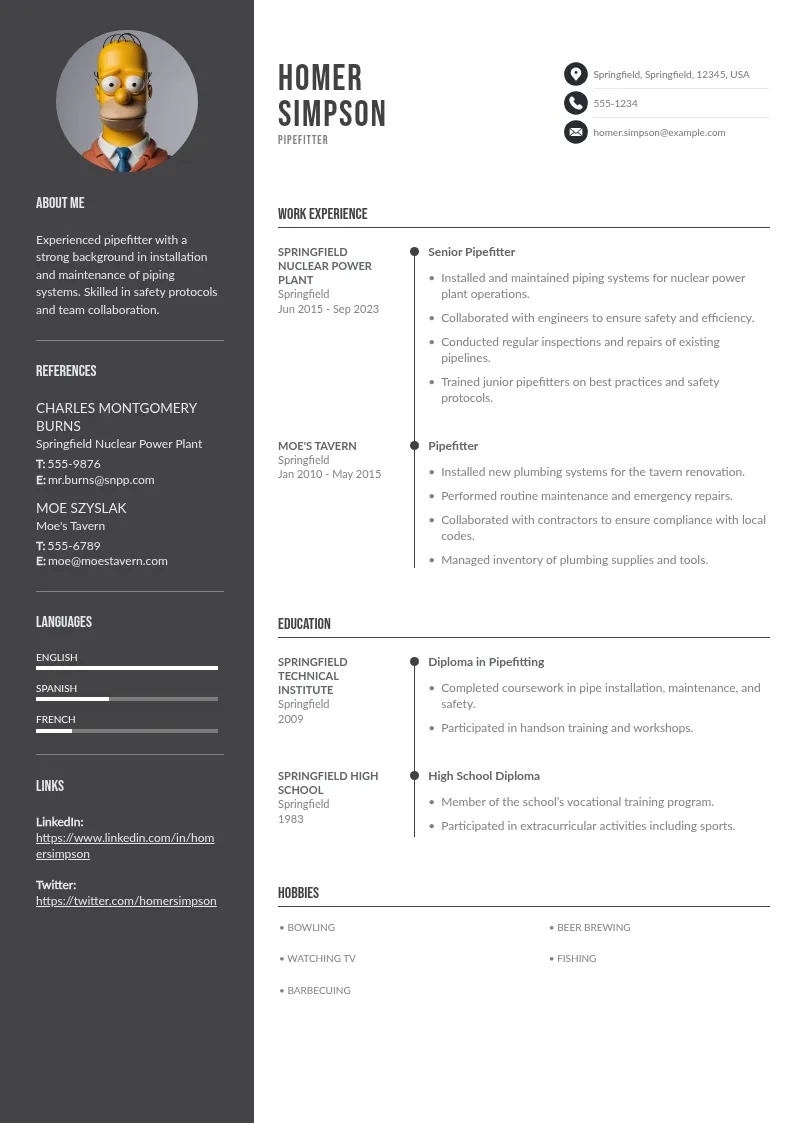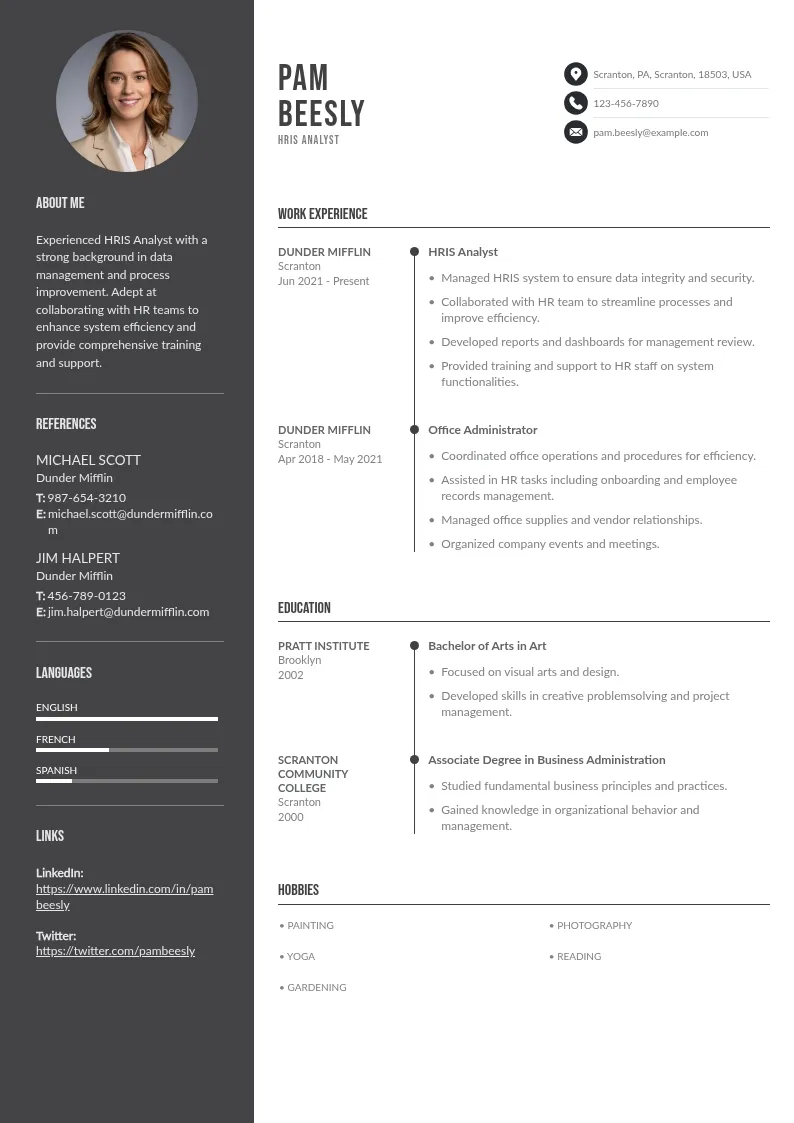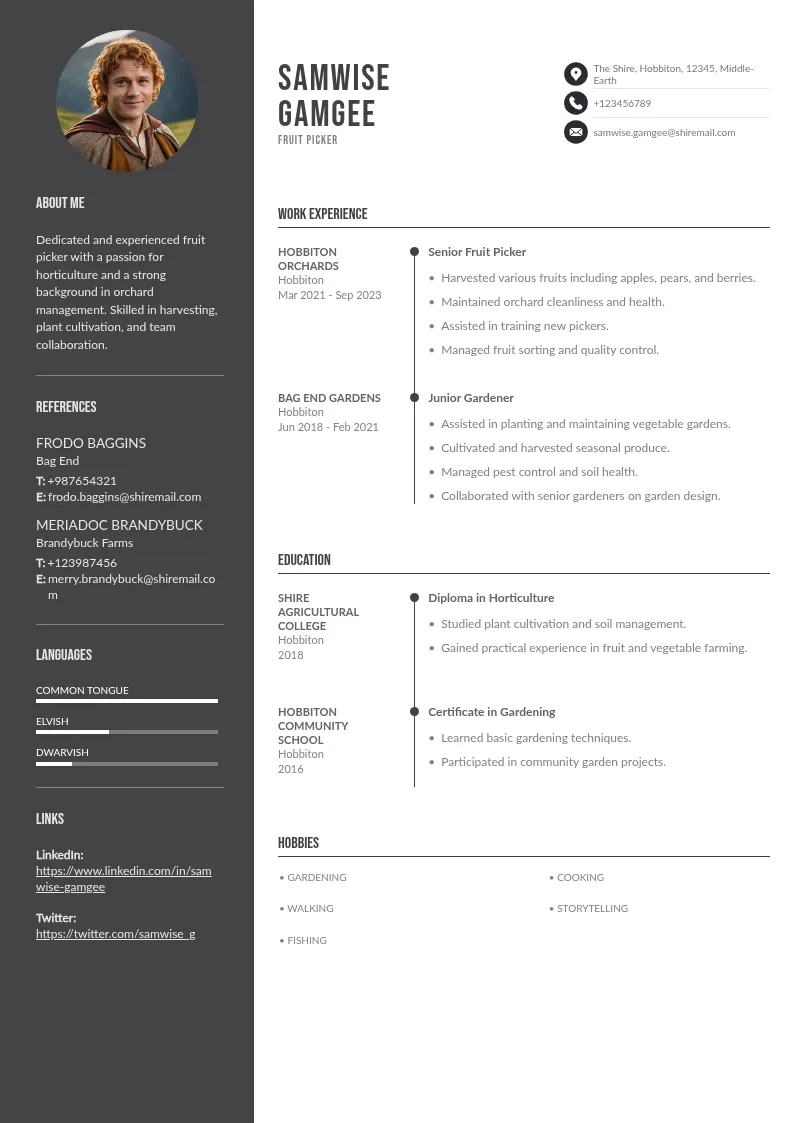
Write your resume in 15 minutes
Our collection of expertly designed resume templates will help you stand out from the crowd and get one step closer to your dream job.


In this guide, we'll show you how to make your volunteer experience really stand out on your resume. It's simple. And it can make you stand out to employers.
Here are all the points we discuss:
- The Importance of Volunteer Work in Your Job Search
- Creating a Strong Resume Volunteer Experience Section
- Highlighting Achievements and Skills Gained Through Volunteer Work
- Putting Volunteer Work into Context
- Best Practices for Listing Volunteer Experience
The Importance of Volunteer Work in Your Job Search

Volunteer work shows employers that you're proactive. And that you certainly care about making a difference. Plus, it's a great way to learn new skills. And meet people
When you volunteer, you often take on responsibilities. Some that you wouldn't actually get in a regular job. This can help you develop leadership traits so you can add leadership skills to your resume. And also assist in learning to work in a team. Or even handle project management. All these are super valuable in any career.
Employers love seeing volunteer experience on a resume. It tells them you're really willing to go the extra mile. It also shows you're passionate. And dedicated. These are qualities every company looks for.
In short, your volunteer work is really more than just a nice thing you do. It's a powerful tool that can boost your job prospects. So, don’t underestimate it.
Interested in applying for a volunteer position at a company? Check this article about how to create a volunteer resume. It includes great tips and examples.
Creating a Strong Resume Volunteer Experience Section

Creating a strong volunteer experience section on your resume is actually easier than you think. The key is to treat it like any other job experience. Here’s how:
- Choose the Right Spot: Decide where to place your volunteer experience. If it’s very relevant to the job you’re applying. Put it in your main experience section. If not. Create a separate “Volunteer Experience” section.
- Be Specific: Be detailed about what you did. Include the name of the organization. As well as your role and the dates you volunteered.
- Highlight Your Achievements: Focus on what you achieved. And the skills you used. Quantify your impact if possible. For example, "Organized a fundraising event. Raised $5,000." sounds impressive.
- Use Action Words: Start each bullet point with a strong action word. Like “organized,” “managed,” “created,” or “led.”
- Keep It Relevant: Tailor the details to match the job. Highlight the skills. As well as the experiences that are truly most relevant to the position.
Here’s an example of a good section:
Need help to create a good resume? Try our simple but effective Resume Builder tool.
Highlighting Achievements and Skills Gained Through Volunteer Work

It's key to focus on your achievements. And some of the skills you've gained. Here's how:
Identify Key Achievements
Think about the really significant contributions you made. Did you lead a project? Increase donations? Improve processes? Quantify these achievements whenever possible.
Showcase Transferable Skills
Highlight professional skills that are truly relevant to the job. Skills like leadership and teamwork. As well as project management, communication, and problem-solving are valuable in any role.
Use Concrete Examples
Be specific. Instead of saying "helped with events." Say "planned and executed fundraising events. Increased participation by 30%."
Connect the Dots
Explain to the hiring manager how the skills you gained through a volunteering experience are actually applicable to the job you're seeking. For example, if you managed a team of volunteers. Mention how this experience has truly prepared you for a supervisory role.
Want to learn more about how to write a resume for volunteer-type work specifically? Have a look at these articles:
- Comprehensive Guide To Write A Perfect Social Worker Resume
- Volunteering Resume : All You Need to Know
- Counselor Resume Guide: Answer for All Your Questions
- Case Worker Resume Examples
Putting Volunteer Work into Context

Writing a volunteer experience into context on a resume means showing how it really fits into your overall career narrative. Here’s how:
- Relate to Career Goals: Explain how your volunteer work definitely aligns with your career objectives. This shows foresight. And intentionality in your career path.
- Match Job Descriptions: Tailor the details of your volunteering experience to truly match the job descriptions. Highlight the most relevant aspects.
- Include Relevant Details: Mention the mission of the organization. As well as the scope of your role and the skills you used. This helps employers understand the actual context of your work.
- Show Long-Term Commitment: If you’ve volunteered long-term, highlight your commitment. It shows dedication. As well as reliability.
Best Practices for Listing Volunteer Experience

To make your volunteering experience section really effective, follow these best practices:
- Be Honest: Only include volunteer experience work with nonprofit organizations you actually did. Don’t exaggerate your role on a resume. Or achievements.
- Keep It Relevant: Focus on volunteer experiences in resume sections that are most relevant to the job to hiring managers. Irrelevant details can certainly clutter your resume.
- Use Clear Formatting: Make sure your volunteer experience is easy to read. Use consistent formatting. Include organization names. As well as roles, dates, and bullet points for achievements.
- Tailor Each Application: Customize your resume for each job application. Highlight the volunteer experiences and actual paid work that best match the job requirements.
- Show Impact: Highlight the impact of your volunteer work. Use numbers. As well as specific examples to demonstrate the difference you made.
You can also talk about your volunteer experience on your cover letter. Have a look at this guide for how to write a good cover letter, as well as a collection of cover letter examples.
The Bottom Line
Volunteering is incredibly powerful. It shows you care. And are proactive. Volunteering count and adding it to your resume can really set you apart. Focus on your achievements and skills. Be specific. And honest. Tailor your resume for each job. Use these tips to make your resume stand out. It might be the extra boost you need to land that job. So, go ahead. Highlight your good deeds.

















